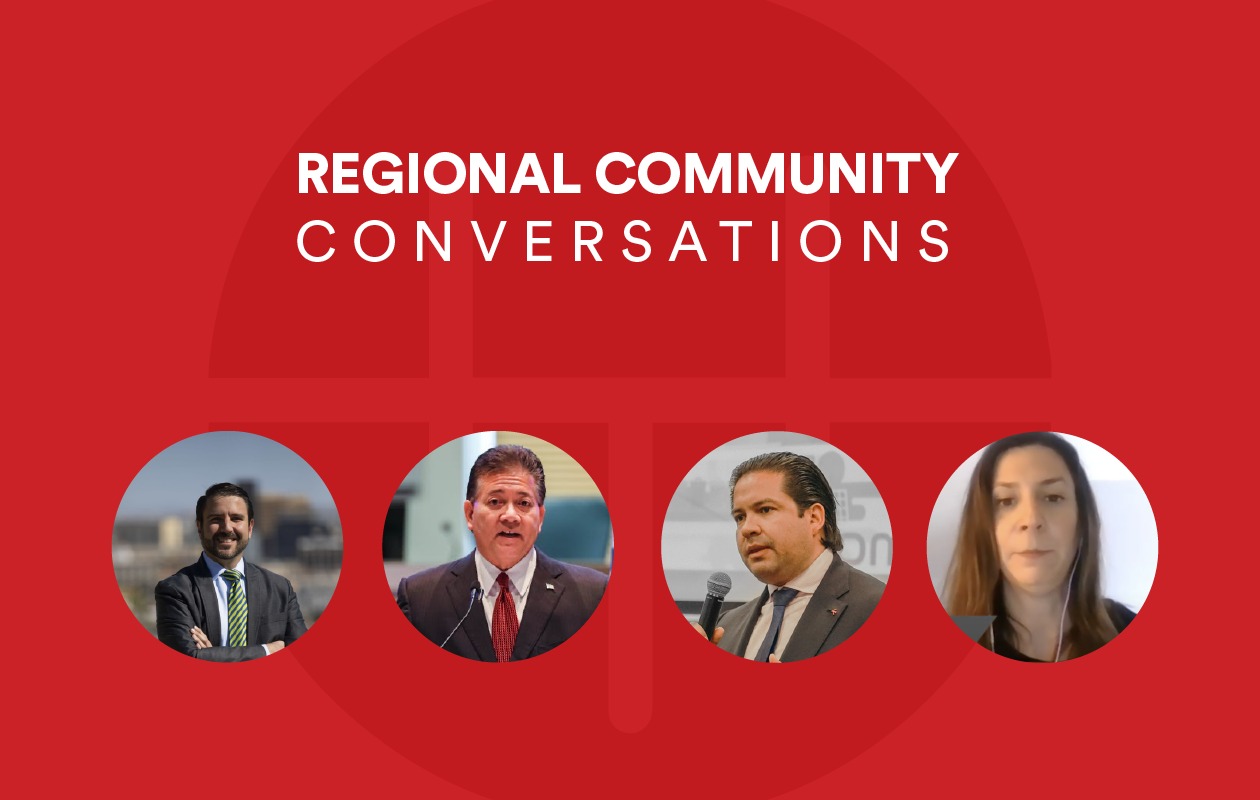With the third edition, Regional Community Conversations is still provoking reflections on people of the region of Ciudad Juárez, El Paso and Las Cruces.
In this occasion, 3 speakers participated and, as in the previous editions, Carlos Martínez Vela, director of Pionners21, was the moderator.
Doctor Nicole Brennan, director of Health Research in Battelle, started off with the conversation.
She specified that there are two types of tests that are being made. The first is to know whether you’re infected or not and the second one is to know if you’ve been infected without knowing.
She clarified that the problem with the second type of testing is that it shows if you’ve been infected with some kind of coronavirus, but not Covid19 specifically.
She talked about the process of “Box it”, which objective is to make tests, isolate, find and quarantine.
It works this way: they test people that they think are infected. If they are, they get isolated and questioned about who they’ve been in contact with in the last 14 days. They search for those people, because they could be infected. If they are infected, they get put in quarantine.
“We’re looking to slow things down; this creates the most valuable resource we need: time”.
After her, it was turn for Álvaro Bustillos, president of Desarrollo Económico de Ciudad Juárez, A.C.
He mainly talk about 4 topics: health sites, economic crisis, security and food banks.
Regarding hospitals, he informed that there are 33 hospitals dealing with the pandemic in the state of Chihuahua; 10 are located in Ciudad Juárez, 3 are federal, 4 from the state and 3 from the private sector.
He added that 90% of the deaths happen in federal hospitals, since they don’t have the capacity to deal with the disease.
He reflected upon the difficulty regarding people following health indications and stay home, adding that the maquiladoras are safer.
Likewise, he commented that, to avoid a strong hit on the economy, it was better to take the opportunity to take the supply chains that United States is looking for to Mexico.
Finally, he informed that the private associations, for instance Fechac, have given their support with 40 million pesos and, alongside other organizations, they’ve gathered almost 100 million pesos.
These funds have been used to equip the security elements with the medical equipment they need to prevent getting Covid19. This way they can make their job with more safety.
Likewise, the money has been used in food banks programs for the more vulnerable communities, so is the case with the indigenous people.
To conclude, Ken Miyagishima, mayor of Las Cruces, New Mexico, shared information about the actual situation in the city regarding Covid19.
He mentioned that 70% of the cases were found outside of the city in nearby counties.
He assured that preventive measures suggested by health organizations, like safe distance, will be taken this Saturday during the elections.
He reflected about the state’s relations with other states, like Texas, since they are mutual dependent regarding preventive measures because, if El Paso opens stores and businesses, citizens of Las Cruces that work in El Paso might spread the virus.
He also commented that only 25% of the test were being made in Las Cruces because of the lack of laboratories. It’s more complicated to send the test to the north in Albuquerque, so he’s looking for a way to find support in the labs of El Paso, it would be more convenient.
The three speakers agreed on insisting on the health prevention actions for the community: washing their hands regularly, staying home and, if they must go out, use facemask and practice safe distance.
Follow us on our social media to get notified before anyone else about these free online events promoted by Technology HUB. Listen to the full event down below.
